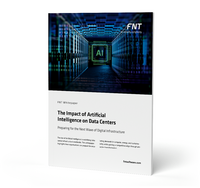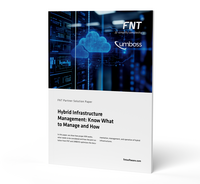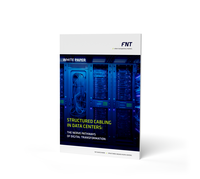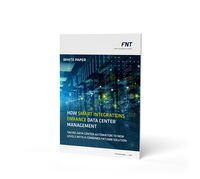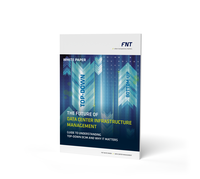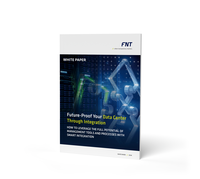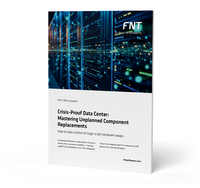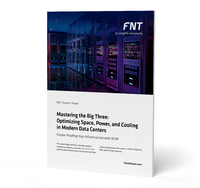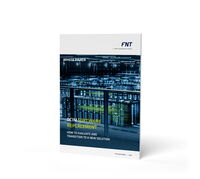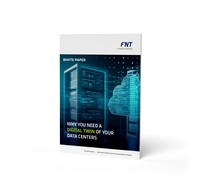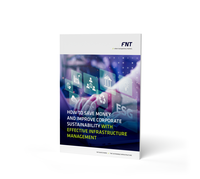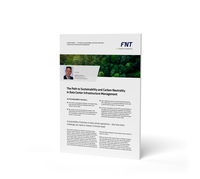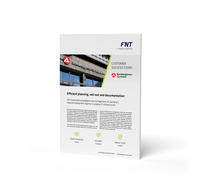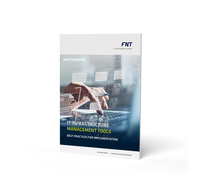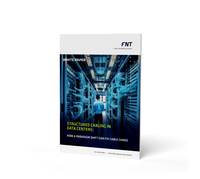FNT Software Solutions for Data Centers and Colocation Providers
Data centers form the backbone of this communication infrastructure, whether they are hyperscaler facilities, telecommunications provider hubs, edge data centers, or the enterprise IT data centers of all sizes found in almost every company across all industries. Vast volumes of data transmissions are concentrated in data centers, in a relatively small space.
We support you in the planning and operation of your infrastructure
Our software solutions for data centers allow you to get transparency over the entire infrastructure (space, power, cooling, network, etc.). The user-friendliness also enables fast and error-free processing through planning, workflow, support as well as graphical user interface (HTML5, Cloud). Thanks to interfaces with other systems as well as the monitoring and integration of various autodiscovery systems, the quality of the documentation is beyond question.
.
What Makes FNT Software Solutions Different?
- Built on FNT Command, the leading software for data center and infrastructure management
- Ready-to-use, fully configurable solutions for fast deployment and individual customization
- Direct access to key functions like documentation, capacity planning, energy and space management, and cabling
- Scalable from a single server room to global data center networks
- Advanced 2D/3D visualizations, dashboards, and reports for full transparency
- Integrated workflows for automating recurring tasks like moves and maintenance
- Open interfaces for seamless integration with ITSM and facility systems
- Also available as a subscription, no upfront investment, perfect for a flexible start
.
.
.
.
.
.
Features and Functions (Click to expand)
- Central data model: Professional documentation of the data center infrastructure including the mapping of all logical dependencies in one master data model.
- Facility Equipment: Documentation and management of all technical building systems such as air conditioning, UPS and fire alarm systems to facilitate maintenance and operation, and minimize failures.
- ITC Assets: Centrally record and manage all IT and telecommunications components – from servers and switches to routers and telephone systems – including their technical data and locations.
- Component Library: Documentation of all relevant infrastructure components using an extensive component library with over 75,000 components from all manufacturers, including all technical and physical parameters.
- Centralized Management: A single, unified platform that integrates facility management, IT, and operations data. This allows data center teams to plan, monitor, and optimize resources (space, power, cooling) from one place, ensuring better coordination and streamlined workflows.
- Space: Management and evaluation of areas in rooms and free/occupied height units in racks
- Power: Capacities, thresholds, utilization charts
- Cooling: In the room, rack, and zones (enclosures)
- Footprint: Visualization functions can be used to create a comprehensive overview of the current state, future demand, and impending capacity problems
- Power Management: Planning and management of power distribution systems consisting of power distribution units with the associated power buses and rails, breakers, distribution panels, rack PDUs, etc. including power measurement down to the power port level.
- Environment: Functions for monitoring and optimizing energy and environmental conditions in the data center
- Heatmap: Visualizes the temperature distribution in the data center room and makes it possible to quickly and easily identify problems such as heat build-up, supercooled areas, or a problem with cooling in general. Also assists in optimizing the system distribution in the room to make full use of the available cooling capacity.
- Monitoring & Control: Continually assess all physical assets in data centers with a centrally controllable system. The configurable dashboard displays important information and also provides detailed performance and capacity analysis for each asset.
- Documentation Health: Regular testing and assessment of the documentation of all data center components to ensure high data quality and provide the best possible support for ongoing operations.
Correctly document and manage the CO2 footprint of infrastructure-related emissions to provide data centers with an important tool for improving corporate sustainability.
Easy access to the information and tools needed to implement switching orders and operate connections, whether physical wired or logical.
- Intersite Connectivity: Between multiple data center locations, including capacity and redundancy planning (e.g., for disaster recovery)
- Intrasite Connectivity: Within a single data center or building complex
- Inside & Outside Plant Connectivity: Both internal cabling (Inside Plant) including patch management and external cable routes (Outside Plant) to ensure consistent documentation of the physical infrastructure.
- Dark Fiber: Leased fiber optic cable connections
- Cross Connects: Carrier interconnects in meet-me-rooms for carriers and customers to efficiently bundle data and telecom services.
- Planning: Implement changes to the existing infrastructure (e.g. cable, network, storage and servers and configurations) based on the existing documentation and considering changes that have already been planned but not yet implemented.
- Life Cycle: Capture every change in the database during the lifecycle of an object. A history function documents a variety of parameters for each CI, such as location, attributes, links, user, and type of change. This information can be evaluated using comprehensive reporting functionalities for one or more CIs.
- Planning Protocol: Create protocols of all planned infrastructure changes to ensure seamless tracking and high transparency for ongoing and future projects, which can also be used as work orders for executing persons or companies.
- FNT ProcessCenter: End-to-end process management for all changes to the existing IT, data center or network infrastructure.
- BI & Analytics: Actionable reports enable informed decisions to support knowledge-based infrastructure and resource planning.
- FNT GraphicCenter: Visualization and analysis of infrastructure and service data in a simple way
- 3D Footprint: Provides a 360° view of the data center, Various standard perspectives and capacity views provide a quick and detailed overview of the actual and target status.
- Netspider: Enables the graphical representation of objects in extensive networks and makes it easier for the user to recognize fundamental relationships.
- CI environment: Attributes such as location, relations, users, owners, etc. are recorded for each CI. This information can be evaluated and visualized with the help of comprehensive reporting functionalities.
- Table exchange format: Data can be exported and imported in CSV and XLS/XLSX formats.
- Interface administration & management: Predefined standard interfaces (API) to numerous commercially available software solutions are available, as well as the possibility to define and operate bidirectional interfaces to any application (reconciliation, FNT StagingArea) to ensure permanent data synchronization.
- Integration: The connection of different autodiscovery solutions offers extensive import functions (e.g. Excel) for easy integration/consolidation of already existing infrastructure data from other systems.
- Server Management (Virtual Machines): Documents all aspects of the modern server and storage infrastructure as well as the distributed systems in the company, providing an important basis for mapping related IT management processes.
- Software management (versions, firmware, licenses): Complete and comprehensive documentation of all used and existing software installations and applications of your company, including the versions and licenses used.
- IPAM: Integrated IP address management for easy assignment, monitoring and planning of IP addresses and network segments as well as VLANs.
- Multitenancy: Support multiple tenants in a common environment, with each organization or department having isolated data areas and customizable settings.
- Roles & Rights Concept: Flexibly configure and manage authorizations according to individual security requirements and other operational requirements.
- Configurability: Quickly deploy and individually adapt a flexibly configurable out-of-the-box solution.
- Web Application: Users can access and make changes to the modern, web-based HTML5 user interface from any device (PC, tablet, mobile) or workstation (home office, office).
- Installation variants & scalability: Implement as an on-premises, cloud or hybrid solution and scale for growing requirements and different company sizes. Option for customer to operate, have FNT host, or utilize as-a-Service.
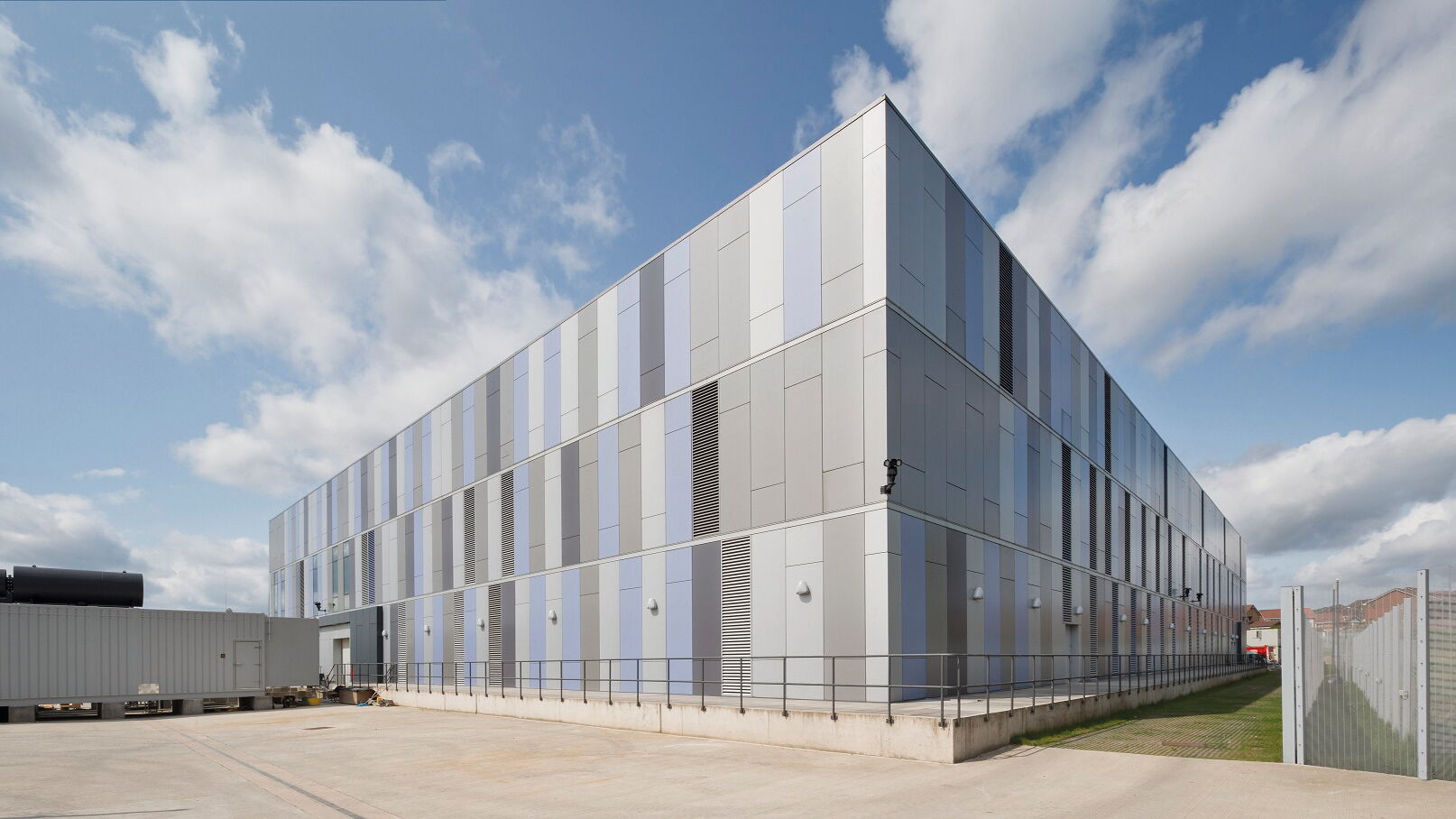
Would you like to know more about it? Then you might be interested in the following:

